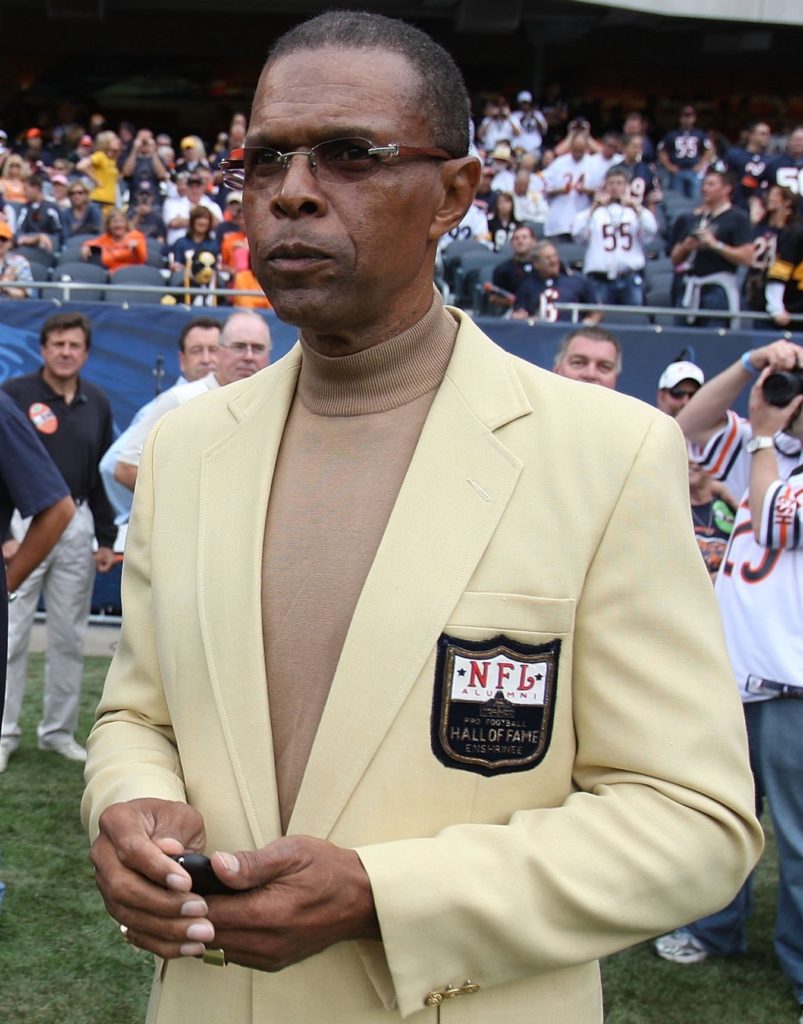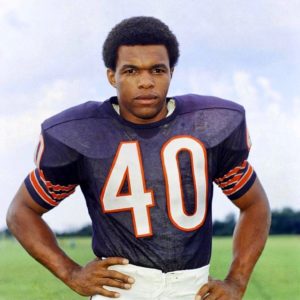
NFL legend and beloved Chicago Bears running back Gale Sayers has died at the age of 77.
Together with Walter Payton, Sayers gave the Bears two of the best running backs to ever play the game. Sayers entered the NFL as a rookie in 1965, and few players made such an impact upon their arrivals. He scored 22 touchdowns that year — including six in one game — and while his career lasted only seven seasons, his toughness, natural physical gifts and unmatched skills on the football field made him one of the NFL’s all-time greats.
Nicknamed the "Kansas Comet", Sayers played college football for the Kansas Jayhawks football team of the University of Kansas, where he compiled 4,020 all-purpose yards over three seasons and was twice recognized as a consensus All-American. In Sayers' rookie NFL season, he set a league record by scoring 22 touchdowns—including a record-tying six in one game—and gained 2,272 all-purpose yards en route to being named the NFL's Rookie of the Year.

He continued this production through his first five seasons, earning four Pro Bowl appearances and five first-team All-Pro selections. A right knee injury forced Sayers to miss the final five games of the 1968 season, but he returned in 1969 to lead the NFL in rushing yards and be named the NFL Comeback Player of the Year. An injury to his left knee in the 1970 preseason as well as subsequent injuries kept him sidelined for most of his final two seasons.
In 1967, Sayers and Bears teammate Brian Piccolo, a white man, became the first interracial roommates in the NFL. Sayers' ensuing friendship with Piccolo and Piccolo's struggle with cancer (embryonal cell carcinoma, which was diagnosed after it metastasized to a large tumor in his chest cavity), became the subject of the made-for-TV movie Brian's Song.
The movie, in which Sayers was portrayed by Billy Dee Williams in the 1971 original and by Mekhi Phifer in the 2001 remake, was adapted from Sayers' account of this story in his 1970 autobiography, I Am Third.
Something great came out of Sayers' friendship with Piccolo and the first film's depiction of their friendship: its effect on race relations. The first film was made in the wake of racial riots, escalating racial tensions fueled by Martin Luther King's assassination, and charges of discrimination across the nation. Sayers and Piccolo were devoted friends and deeply respectful of and affectionate with each other. Piccolo helped Sayers through rehabilitation after injury, and Sayers was by Piccolo's side throughout his illness until his death in June 1970.
Sayers was inducted into the Pro Football Hall of Fame in 1977 at age 34, and remains the youngest person to have received the honor. He was named to the NFL's 75th Anniversary Team as a halfback and kick returner, the only player to occupy two positions on the team. For his achievements in college, Sayers was inducted into the College Football Hall of Fame the same year. His jersey number (40/48, respectively) is retired by both the Bears and the University of Kansas. Following his NFL career, Sayers began a career in sports administration and business.
Sayers went on to become a stockbroker, sports administrator, businessman and philanthropist for several inner-city Chicago youth initiatives. He was always seen giving back in some way. He also served as athletic director at Southern Illinois University-Carbondale from 1976 to 1981. and founded several technology and consulting businesses.
Later on in life, Sayers battled with dementia which ultimately began the decline of his health until his death.
When giving Sayers’ Hall of Fame induction speech in July of 1977, a legend in his own right, George Halas, said the following about Sayers: “If you wish to see perfection as a running back, you had best get a hold of a film of Gale Sayers. He was poetry in motion. His like will never be seen again.”








